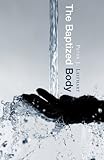 The Baptized Body
The Baptized Body by
Peter J. LeithartMy review
rating: 5 of 5 stars
Argues the radical thesis that, in the New Testament, baptism means baptism, and that baptism does everything attributed to it. Why didn't someone in the Reformed tradition think of this sooner? Maybe it takes awhile to get over our knee-jerk reaction to Rome.
Leithart also argues that sacraments repair the original design of creation. Grace repairs nature, it does not lay down a "separate track" that intersects with regular life at a later conversion experience. Infant baptism restores the infants relationship to God that was disrupted by the fall, so that nature and grace work on the same track from the beginning of life. Thus, through the sacraments of baptism and the Lord's Supper, New Covenant life resembles the way life would have been lived under the Adamic covenant.
Christians shouldn't raise children so as to bring them into the covenant, but we should raise them from within the covenant. Leithart says that we start talking to our children not because they understand us, but so that they will. Baptism is God's language whereby he starts talking to his children and initiates a relationship with them. Sacraments are word after all.
Leithart also argues that the terminology "means of grace" makes grace sound like a substance that can be channelled. I would add that it seems to resonate with scientific ways ways of thinking about raw materials. Leithart suggests that the gift imagery of Scripture doesn't need help here. In the covenant, grace works naturally upon our children as we talk of the things of God when we get up, lay down, and walk along the way (Deut. 6:4-6).
View all my reviews.

